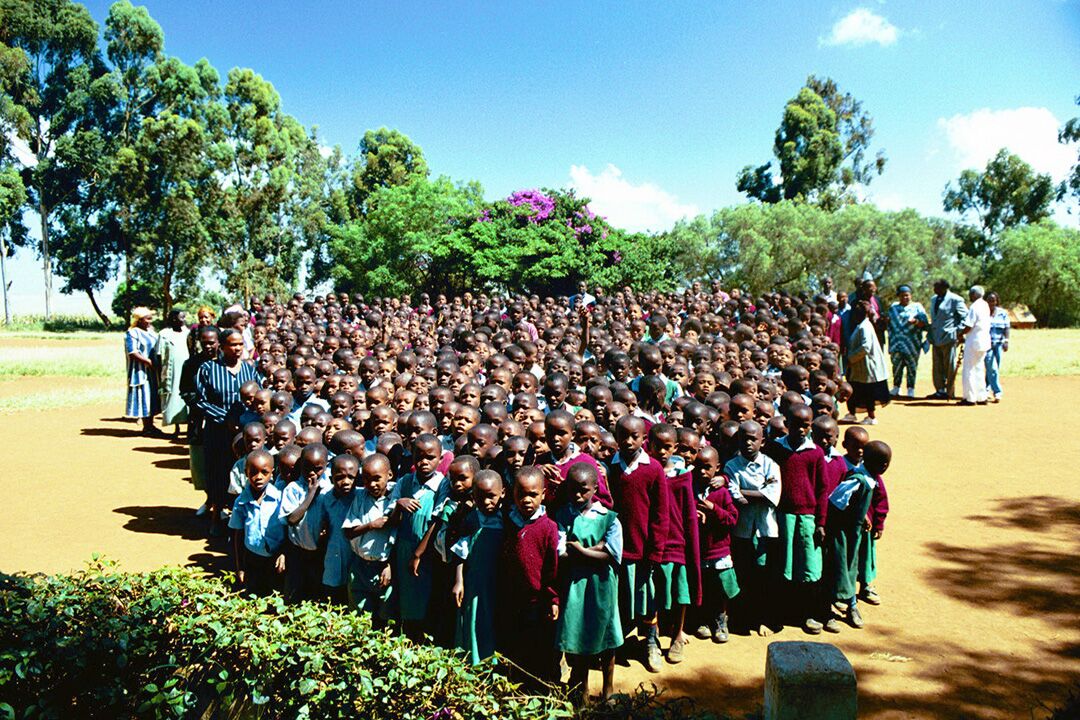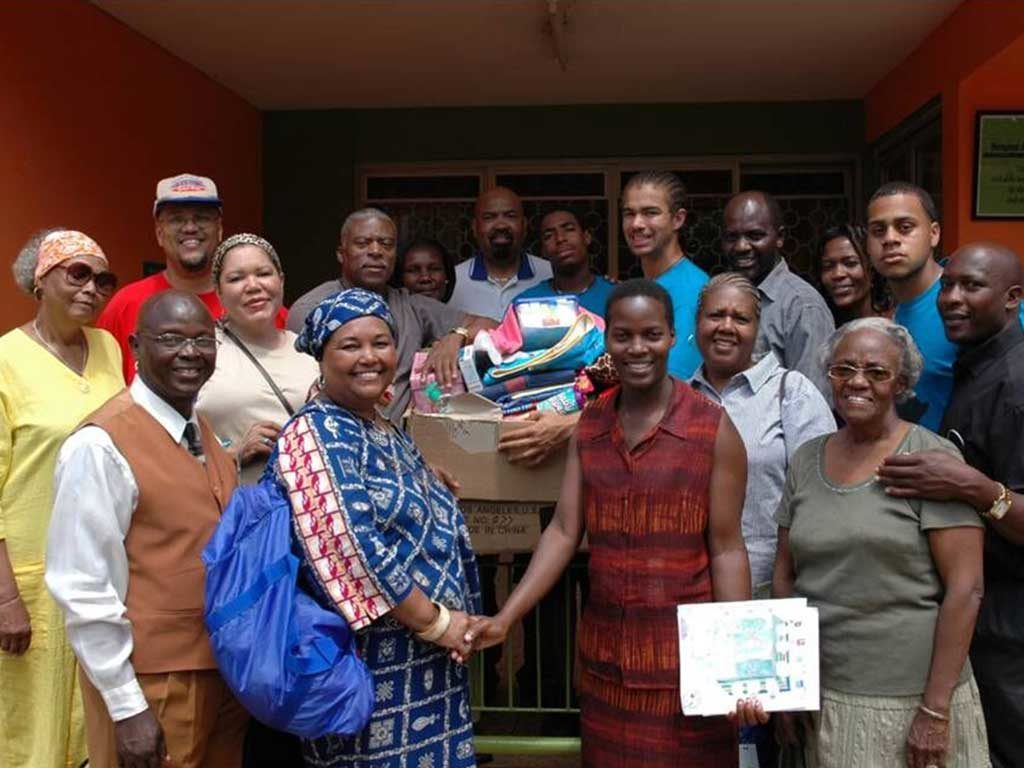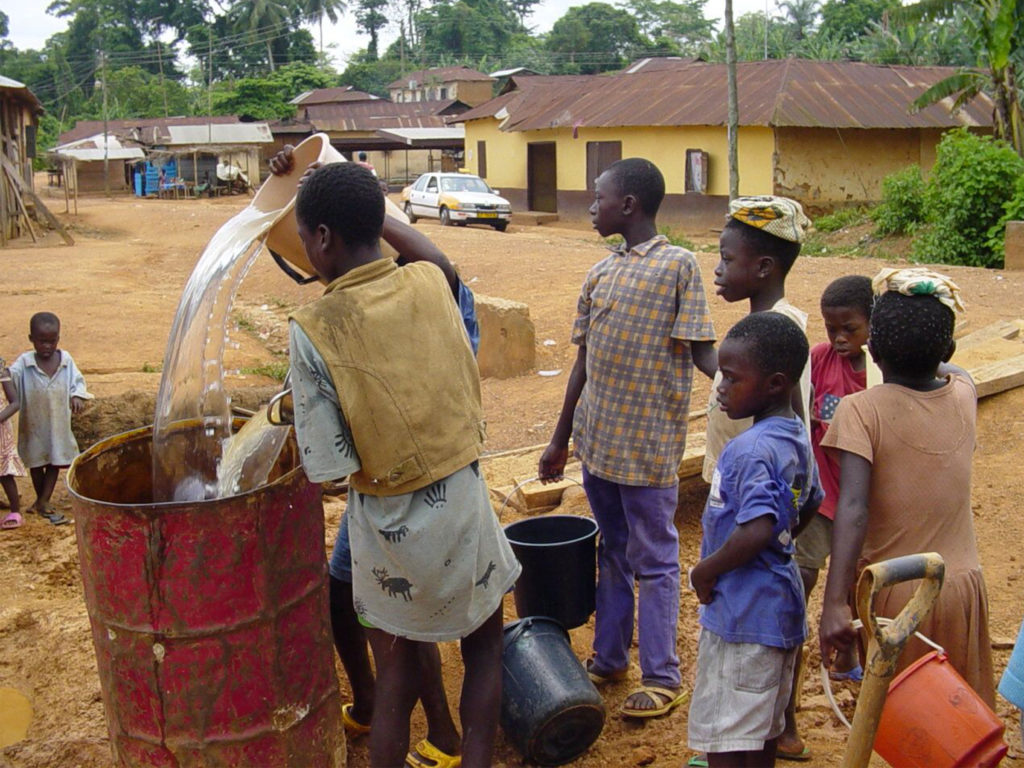Founders
In 1993 Richard Butcher M.D. and Vickie Butcher J.D. founded Water for Children Africa (WCA), inspired by the leadership of Reverend Leon Sullivan (Civil rights activist and humanitarian) at the 2nd African-American Summit in Libreville, Gabon. During the Health Committee session, Dr. Louis Sullivan, the United States Secretary of Health and Human Services, recommended that safe water throughout Africa be established as a long term goal of the Summit. Vickie attended the Summit as a surrogate for Dr. Butcher who was President of the National Medical Association at the time.
Previously, Vickie had discovered her love for the African people, and culture, while traveling several times to the continent with her mother, Margaret Powell. The spotlight on “unsafe water” at the Summit sent her on a quest to find out why African children continue to die from contaminated water in the modern era.
She was touched by the humanitarian need of her people, and didn’t hesitate to embrace the call to devote time, effort, and money to bring help to the children that need it most. Supporting Vickie fully, NMA President Richard O. Butcher M.D. donned the mantle of founding President for WCA.
Over the last two decades, Water For Children Africa has established projects in the following countries: Kenya, Ghana, Tanzania, Liberia, Ethiopia, South Africa, Uganda, Sierra Leone, Senegal, The Gambia, and Cameroon. A woman who lives what she teaches, Vickie has visited 17 countries, of the 54 on the African continent, always looking to provide water when asked.
Maji ni Maisha Water is Life
Water is essential to our life.
It affects our health, our education, time and future. Clean water changes everything!
Our Mission
- Provide safe, sustainable water to rural villages in Africa
- Partner with villagers to train as needed in equipment, public health, and economic development
- Build an entrepreneurial bridge to improve the commercial relations between the U.S. and Africa
- Recruit, educate and train youth and adults to take a leadership role, adopt a vision for future development of Africa, and plant “seeds” of service
Who We Are
- WCA Chairman of the Board is Ernestine Henning, Supervisor of the 3rd Episcopal District of the AME Church, supported by a Board of Directors and a core team of volunteers that address the wide variety of organizational needs
- Each year a water project team of volunteers travels to address water needs in Africa
- WCA sponsors an Annual African Trade and Business Conference which focuses on the commercial needs of small businesses in the US and African economies – 20 Conferences have been convened to date
- In addition to the primary focus of water, WCA addresses HIV/AIDS, medical and hospice needs, school supplies, and support for orphanages
How We Work
- The American Team consists of adult and youth volunteers as well as a core operational team. The operational team investigates, researches and plans the international trips. The travel team receives training and project implementation skills to meet the needs of the identified countries.
- The African Action Agents/Agencies in each targeted country participate in planning project details, identifying local resources and supporting the visiting teams.
- Village Water Committees are village leaders who make decisions necessary for on-going care and maintenance of the village water supply or other needs.
What We Need
- Volunteers with skills in public health, cottage industries, agriculture, education or water drilling, and many other areas of need
- Monetary donations to support projects: freight-shipping, rainwater collection tanks, drilling equipment, water pumps, and individualized supplies for the target country

How does Water for Children Africa accomplish its mission?
American Project Teams
- Plan a project for the selected countries
- Select and train visiting team members
- Raise funds for meeting project goals
African Action Agencies
- Conduct a country needs analysis
- Advise Project Teams on specific goals
- Communicate with villages, educational, and medical locations to coordinate site logistics
Village Water Committees
- Develop Policies for water usage in the village
- Take responsibility for ongoing maintenance of equipment and cottage industry

